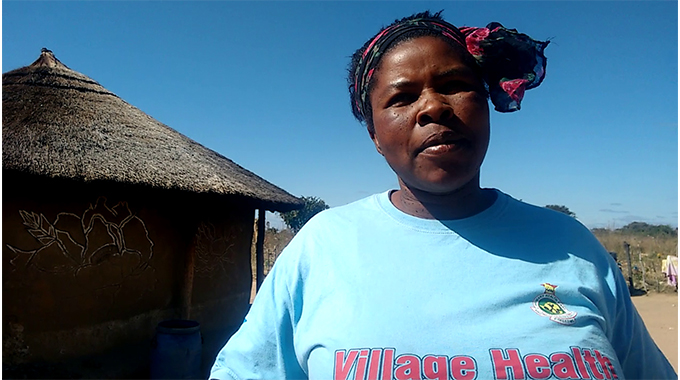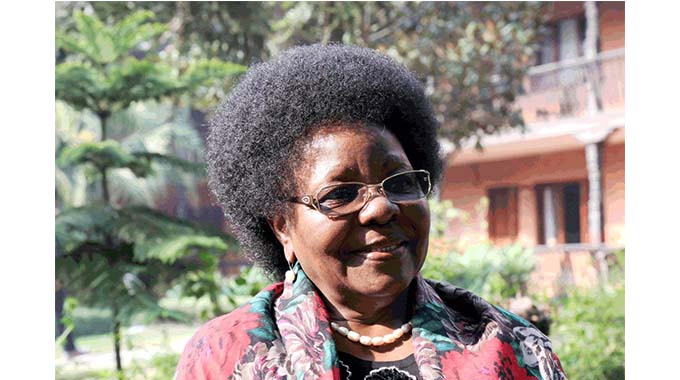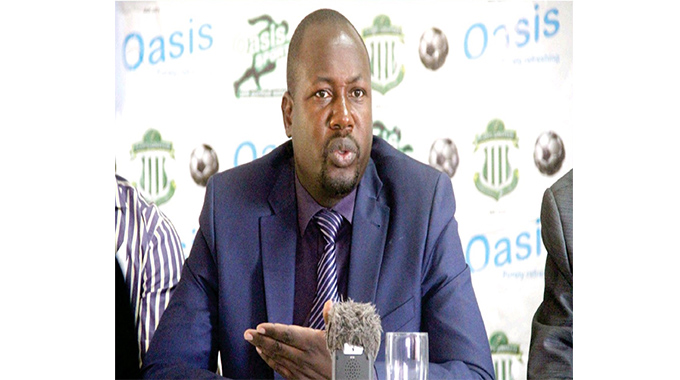Workers’ Day: A celebration of village health workers

Hazel Marimbiza
Workers’ Day was marked on Saturday.
It is set aside to celebrate the important role that the worker plays in the development of countries worldwide.
However, some workers seldom get the recognition they deserve. They include village health workers (VHWs). Workers’ Day must be an opportunity to also recognise and pay tribute to the tireless work of VHWs, also known as community health workers, around the world.
The Covid-19 pandemic has triggered additional humanitarian crises around the world, making their work even more challenging — and vital.
This is the time to remind ourselves of the enormous personal sacrifices that are being made every day by VHWs.
VHWs are people chosen by the community and trained to provide health promotion interventions and health-related duties within their communities and some have neither formal certification nor tertiary education.
They are on the frontline of every outbreak, often at the risk of their own safety and security. The world cannot defeat outbreaks and pandemics without committed VHWs who tirelessly strive to save lives and tackle threats. We must celebrate their work, thank them for their service and pay tribute to their critical role in global health security.
VWHs are important because globally there is a shortage of health professionals. According to the Global Health Workforce Alliance and World Health Organisation (WHO) a total of four million health professionals are needed to have all health positions filled. The problem is however, more pronounced in developing countries, with Sub Saharan Africa having only 3% of the global health providers. Staff shortages have weakened health systems of these countries resulting in high morbidity and mortality; and this has contributed to failure by these countries to achieve targets set for health related Sustainable Development Goals.
Realising this challenge, WHO recommended the use of VHWs to provide primary health care in these countries with weak health systems and high demand for health services.
Research has illustrated the benefits of using VHWs in the health systems as follows; linking communities to formal health systems, cost effectiveness considering that most of them are volunteers, and ability and more willingness to learn by local people when taught by VHWs.
Systematic reviews have provided evidence that VHWs are also efficacious in improving coverage and quality of services. This includes interventions such as promoting delivery at health institutions, post-natal services, early child caring, and prevention of mother to child transmission of HIV. Other roles where VHWs have been effective include screening and education activities of HIV and tuberculosis and the necessary support treatment and adherence, nutrition, immunisation programmes, and malaria and pneumonia assessment and treatment.
VHWs in Mangwe District deserve to be appreciated as they are working hard to ensure villagers remain in good health.
Mrs Sihle Sibanda from in Marula, is one VHW who is dedicated to her role of educating villagers on their health.
She delivers health assistance by conducting health promotion services ranging from maternal, neonatal and child health, nutrition, water, sanitation and hygiene (WASH) related information and management of common childhood illnesses.
She is one of Zimbabwe’s VHW’s who form a critical backbone of the country’s public health system in rural areas by interfacing with communities on a day-to-day basis and providing a crucial link to hospitals and health clinics for people who often stay long distances from health facilities and rely on the first-line help from those who live in their communities.
Trudging rough terrain through valleys and mountains to reach community members in dire need of health services and education is the least of her concerns as she has been training mothers of children under the age of five years on good hygiene practices and what they should do to keep their children healthy.
For Mrs Sibanda it means having to sometimes walk for hours uphill from one homestead visit to another.
“There are several households within the catchment area that I visit, along with 2 other village health workers,” she said.
“Sometimes we have to walk uphill for an hour or more in order to reach some of the mothers and children that we need to visit.”
She also helps nurses at the local Marula clinic by collecting and reporting information on children’s health status regularly. The information helps nurses to respond to any cases of malnutrition in infants and young children. Once she refers a child to the clinic, nurses carry out further assessments and provide the child with appropriate life-saving treatment for malnutrition.
Her work makes a contribution to national and global targets related to a range of health priorities, including universal health coverage, mental health and non-communicable diseases, emergency preparedness and response, patient safety, and the delivery of integrated, people-centred care.
People in remote Marula distanced from medical facilities trust VHWs who live in their localities with their lives.
Many say they owe their health and that of their children to women who sacrifice their time to offer health education and basic services to communities who lack quick access to health centres.
Ms Nozipho Dube, a mother of one recalled how Mrs Sibanda helped her when she was giving birth.
She said when she felt labour pains in 2018, she didn’t want to go to hospital, preferring to manage the pains, and even give birth at home.
“She forced me to go to hospital, I didn’t want to but she forced me. I eventually went to the hospital and gave birth to a daughter,” said Ms Dube.
In the Covid-19 context, VHWs’ roles have expanded beyond engaging communities in prevention and protective measures, to include detection and responses in containing the pandemic. To this end, their current training links them with local health facility staff and rapid response teams.
Mrs Sibanda feels obligated to help her community fight the pandemic. Every week, she braves the sizzling sun and long distances to support the community on how they can prevent infection and protect themselves and their families from the novel coronavirus.
Meetings conducted by VHWs have not only benefited mothers but the community at large. They have taken an active role in raising awareness on Covid-19 and mothers have adopted all they have been taught into their households. This means the health of the mothers and that of their families is protected.
Ms Dube said attending the meetings has assisted her family as they get to learn about the coronavirus and what we should do to protect themselves.
“VHWs taught us that the well-being of the family lies upon the mother, so I take to heart everything they teach us. Some people do not believe that coronavirus is real but my family and I believe it is there, based on what our health worker explained to us and what we hear on radio,” said Ms Dube.
“I was taught how to make cloth face masks and I made some for my family as these are cheap and re-usable after washing.’’
Whilst the above evidence demonstrates the crucial roles performed by VHWs in Zimbabwe, they need more support.
According to research the goal of the VHW program is to achieve national coverage with 15 000 VHWs. However, only an estimated 19 percent of villages have active VHWs, and a household survey revealed that fewer than half of the respondents had access to a VHW in their ward. The programme faces many challenges. VHW training programs have been closed down in many districts. Remuneration is inadequate and irregular.
Therefore the success of these interventions is dependent on specific conditions; including the initial recruitment and selection, motivation, standardisation of protocols, supervision and support, remuneration and structure.










Comments